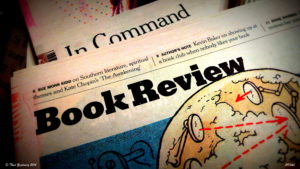Can a Character in an Autobiographical Novel Review the Book in Which She Appears? On the Ethics of Literary Criticism

Written by Mette Leonard Høeg
The common intuition in literary criticism, in art criticism in general and in the public cultural sphere is that it is wrong to engage in criticism of a work if you have a personal relation to its author. The critic who reviews the book of a friend, a professional contact or a former lover is biased and could draw private benefits from this, have ulterior motives of revenge or social/professional advancement. It is the convention in literary criticism to strive for objectivity in the assessment and review of a work, and the critic is generally expected to refrain from referencing personal experiences and using private and autobiographical material, in order to be considered professional, expertly and ethically responsible.
